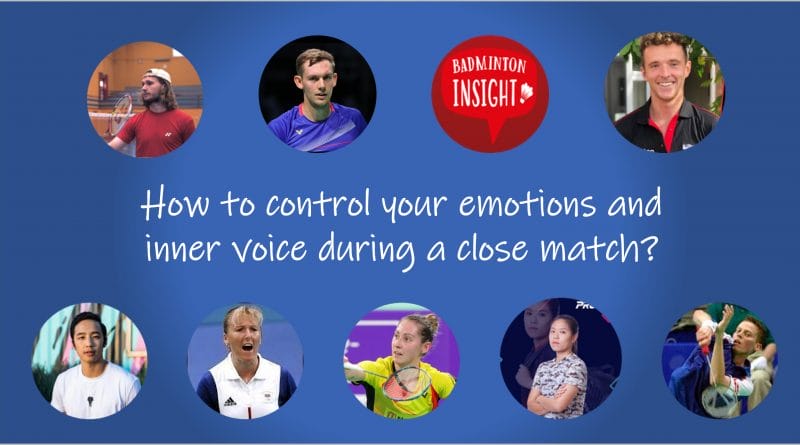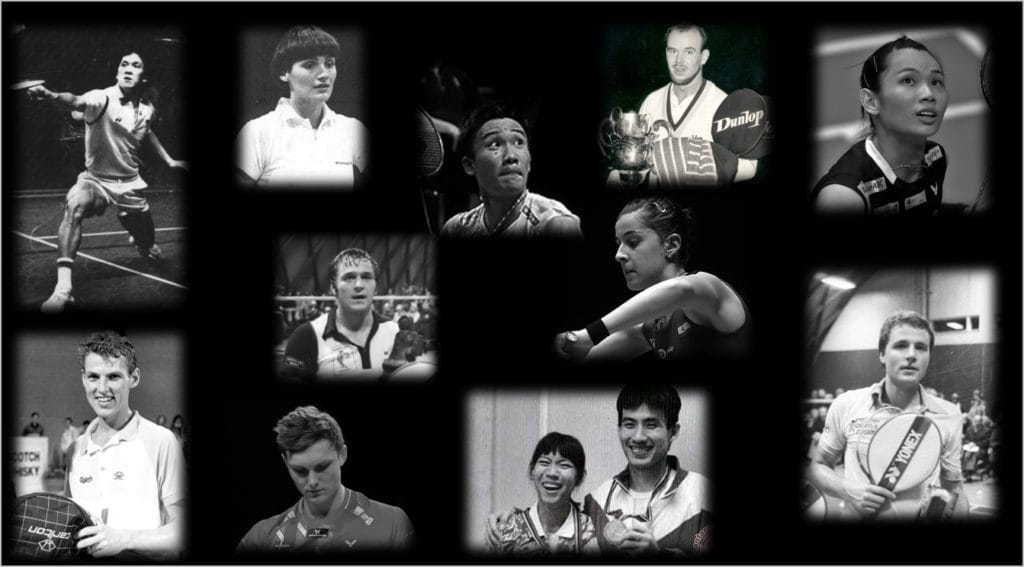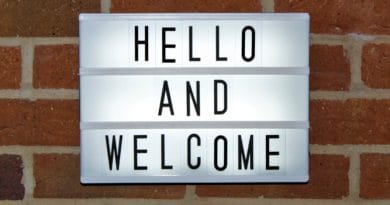How to control your emotions and inner voice during a close match?

Kirsty Gilmour
Learn to manage yourself and those little critical moments
It's a mixture. Sometimes you're in a flow state and literally not having many thoughts. On the other hand, I think it's important to counteract any negative thoughts of self-doubt or fatigue with positive messages.
Also, taking some extra time to fix your laces, taking an extra deep breath and re-focus can really help too.
Gamesmanship is a huge factor when matches get tight, whoever manages those little moments better for themselves hugely shifts the odds into their favour.

Jonty Russ
I'm not really sure, other than routines
Gonna be honest I don't have a clue if I am honest - the best I can give here is to have routines.
Routines when serving, routines to calm you down when you are feeling stressed.
I've been lucky that its never really been something that affected me a huge amount so far. I know it is more of a long term thing but I am a big fan of mindfulness and meditation routines as I think this allows us to help control our emotions better.
We've done a podcast episode on this 🙂
Reminding myself of where I am in space/time - that I'm here, enjoying this moment.
So I had a set ritual that would help me get into that mindset that I had practised before at training and other tournaments.
It's all revealed in this episode, listen to the podcast or watch the YouTube

Tracey Hallam
When you hear any negative thoughts, remind yourself to keep trying to do your best
Stay calm so the opponent cannot read your feeling. That is unless you have just won the point, but if you do focus on your next rally, and bring yourself back to your tactics.
Change your focus from yourself to your opponent. See if you can see anything different, to gauge how they are feeling to encourage you even more.

Marvin Seidel
Be brave and self-confident in these moments
When I heard a negative voice I know that I've already tried to implement the right thoughts in training, so I know I'm prepared for the real match situation.
A lot of it is self-taught and experienced by my own actions and thoughts. Of course, we also have a mental coach that helps us to develop strategies. If you can talk with these types of coaches and use their knowledge.
I think the most important part is to be brave and self-confident in these moments.
There mostly is no right and wrong in the decision making, it’s more about how much you believe in the decisions you make and how good you can stick to your game plan

Daphne Ng
You need to find what works best for you, so try different routines
Breathing technique to keep me calm, know your cues to psych up for concentration ( it can be adjusting racket strings), positive self-talk.
All of this can be taught but I think you should experiment in practice first. Then decide if you like the feeling that they create.
Remember, there is no one perfect solution and it takes practice just as everything else.
However, some things will work, I promise 🙂
There are lots of psychological strategies you can use to reset and eliminate the demons inside your head
We recommend that you research by reading books, talking with Sports psychologists, other players even asking your best friend.
Two actionable tips are to use your coach at the back of the court, and if you're playing doubles, your partner on-court! Communicate with them beforehand things you want and don't want them to say - what's going to make you fired up when you need it, or calm down if you're almost over the edge.
Another good tip that a lot of people forget about is breaking up the play and rhythm of the match. Create moments to give yourself time to re-group and think clearly.
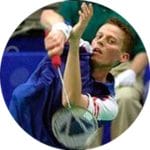
Richard Vaughan
Prepare yourself by education and practice and believe they work
I recommend that you step onto the court with a clear game plan. It's easy to say but at times of stress or doubt, I need to know what to focus on, what I was trying to achieve.
Then ensure you have trigger words or actions that can 'silence' any voice and revert back to the game plan.
You must not only create and practice these actions, but you must believe in them on the court in competition.
This would depend on the situation and who I was playing
Sometimes I would just try and keep my emotions in check staying calm but other times I would be fired up trying to put the pressure on my opponent.
I also had a psychologist who helped me and gave me a few tips.
One was thinking about my grip, which would break down into power, breathing and focusing on the next point. Breaking down the game into a series of mini "best of 3 points" rather than lots of points helped as well as it would retain my focus a lot more.
If you like to know more about how champions think, take a look at this post below
I wonder how many of the suggestions you will agree with?
Thanks to everyone for their time and considered thoughts
If you'd like to join this expert team and start sharing your knowledge, send me a message and I'll send you some questions
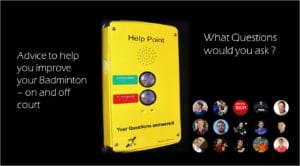
Don't forget to click here to see a list of all the questions

